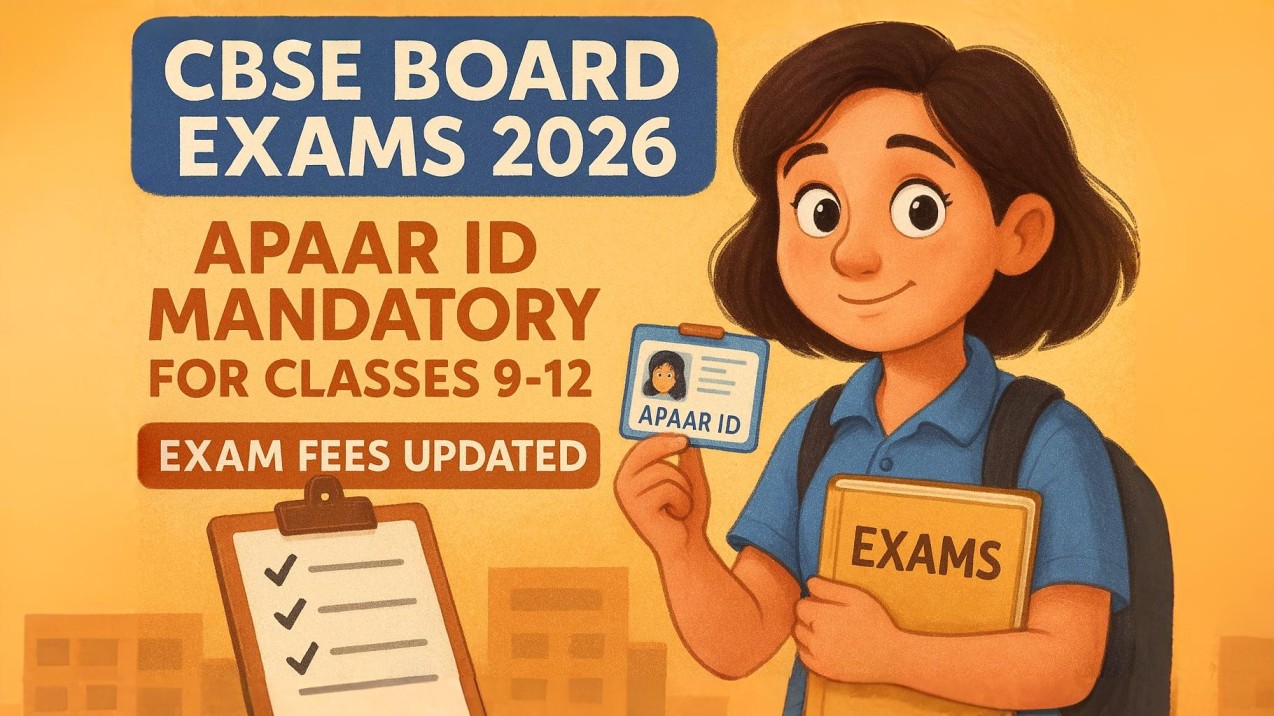Loading advertisement...
12-08-2025

The Central Board of Secondary Education (CBSE) has introduced major changes for the 2026 academic year that will impact lakhs of students across India and abroad. The two biggest updates are:
Mandatory APAAR ID (Automated Permanent Academic Account Registry) registration for all students in Classes 9, 10, 11, and 12.
Revised CBSE exam fees for board and internal examinations.
These changes are part of the National Education Policy (NEP) 2020 vision, aimed at digitizing student records and streamlining academic administration.
The APAAR ID is a unique, lifelong academic identification number for every student in India. It is designed to:
Securely store academic records such as marksheets, transfer certificates, and co-curricular achievements.
Enable digital verification of educational qualifications by universities and employers.
Integrate with the Academic Bank of Credits (ABC), which allows students to accumulate and transfer learning credits between institutions.
Support paperless, transparent, and faster academic processes.
This ID will remain with the student throughout their educational journey, from school to college and beyond.
CBSE has made APAAR ID compulsory starting from the 2026 session because:
Board exam application forms will be linked directly to APAAR IDs.
It will prevent duplication of student records.
Helps in tracking academic progress across schools, states, and boards.
Aligns CBSE with the government’s national digital education initiatives.
Without an APAAR ID, students may not be able to register for board exams in 2026.
The revised exam fee structure affects both regular students and private candidates.
While the exact fee amounts depend on the subject combination and whether the student is in India or abroad, changes include:
Increased registration fee per subject for board exams.
Higher charges for practical exams in science, fine arts, and vocational subjects.
Additional late fee penalties for delayed submissions.
Adjustments in migration certificate fees and re-evaluation charges.
The mandatory APAAR ID and revised exam fee structure mark a major shift in how CBSE conducts its examinations and manages student records. While this will require some adjustments initially, it will greatly benefit students in the long run by making academic documentation secure, accessible, and future-ready.
CBSE advises schools, parents, and students to act early—register for the APAAR ID, understand the updated fee structure, and keep track of official deadlines to ensure a smooth examination process in 2026.
✅ Stay connected with Skool Guru for more educational tips, exam strategies, and academic guidance.
📞 Need help? Contact our mentors today!
Visit: www.skoolguru.in